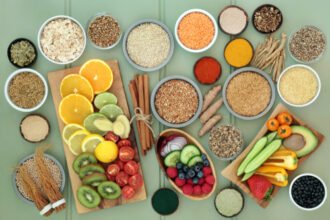Herbal Supplements – are made from natural plants and are utilized by some people to supplement traditional medical treatments. Herbal supplements are not considered drugs and are not regulated by the Food and Drug Agency (FDA). This absence of regulation means that the effectiveness, quality, and quantity of the ingredients have not been independently verified.
Herbal Supplements – are made from natural plants and are utilized by some people to supplement traditional medical treatments. Herbal supplements are not considered drugs and are not regulated by the Food and Drug Agency (FDA). This absence of regulation means that the effectiveness, quality, and quantity of the ingredients have not been independently verified.
Herbal supplements have become a billion dollar industry with many people taking herbal supplements for a variety of ailments. But did you know that whether you take echinacia or aspirin you should always tell your dentist or physician what you are taking?
Everything you ingest, even vitamins, causes a certain reaction in the body. If your dentist does not know what drugs or herbal supplements you have taken, he or she will not know how to protect you from drug interactions. This is particularly important if you are undergoing any type of surgical treatment requiring general anesthesia.
Conventional Drugs Vs Herbal Supplements
Many prescription and over the counter drugs sold around the world are derived from plants but they are very different from herbal supplements. The prescription and over the counter medications must be regulated by the Food and Drug Administration (FDA) and undergo rigorous testing before coming to market. Even though, these drugs are derived from plants they are based around an active ingredient or chemical that the manufacturer synthesizes in a laboratory.
Herbal supplements are made from natural chemicals extracted from a plant and are produced either in original form (sometimes in combination with other herbal extracts) or refined. When an herbal medication is refined, the essential extract is taken out of the plant source, concentrated and then added back to make the original herbal medication more potent.
Herbal Supplements and How They are Thought to Benefit Oral Health:
-Coenzyme Q10 promotes gum healing and cell growth.
-Lysine combats canker sores
-Vitamin C with Bioflavonoids promotes healing, especially of bleeding gums.
-Calcium and Magnesium help prevent bone loss around the gums.
-Vitamins A and E are used for healing gum tissue.
-Grape Seed Extract is a powerful antioxidant and anti-inflammatory.
-Zinc plus Copper enhances immune function.
-Aloe Vera Gel eases inflamed gums and soothes the tissues when applied directly to the affected area.
 -Tea Tree Oils are believed to be antiseptic and anti fungal.
-Tea Tree Oils are believed to be antiseptic and anti fungal.
-Chamomile Tea is soothing to gum tissues.
-Green Tea is helpful in decay prevention and decreases plaque, increased antioxidants.
-Clove Oil is good for temporary relief of tooth and gum pain.
-Echinacea keeps inflammation down and enhances immune function.
Interactions to Avoid
Even seemingly harmless vitamin and herbal supplements can have serious side effects for certain dental patients. The following are some combinations of herbal supplements to be aware of:
-Ginkgo biloba and vitamin E can be dangerous when taken with aspirin because they each can act as blood thinners. The combination may cause difficulties in blood clotting, which could be serious for patients undergoing any type of oral surgery (such as a tooth extraction or periodontal surgery).
-Taking high dosages of vitamins before receiving anesthesia can also create issues. In particular, vitamin C, often taken in high dosages for cancer treatment, can weaken the efficiency of anesthesia.
-On the other hand, calming supplements, such as Kava Kava or St. John’s Wort, can strengthen the effects of anesthesia.
-Homemade tea tree supplements should be avoided, as they can cause irritation and burning.
Herbal Supplements And Dentistry Conclusion
People tend to think herbal supplements are harmless because they are considered natural, and they think, if one is good, 10 are better. Overdoing it, with supposedly safe herbal supplements, can cause health problems as serious as internal bleeding and heart arrhythmia. That is why it is so important to let your dentist and physician know when you are taking any herbal supplements to avoid any possible drug interactions or unforeseen consequences.
Always provide your dentist with a complete medical history, including any herbal supplements and conventional drugs you are taking. Some patients who take alternative herbal supplements are afraid their physician or dentist will not understand their decision to take an herbal supplement and will advise them to stop taking it. Your physician or dentist might even recommend an alternative, herbal solution for you.
If an herbal medication could interfere with your dental treatment, your dentist may ask you to stop taking the medication until the treatment is complete. The dentist also may be able to prescribe a different drug for treatment, if one is available. As always visit your dentist regularly for dental examinations and regular professional cleanings to keep your dental health.
© 2013, Marielaina Perrone DDS. All rights reserved. Las Vegas Cosmetic Dentist









